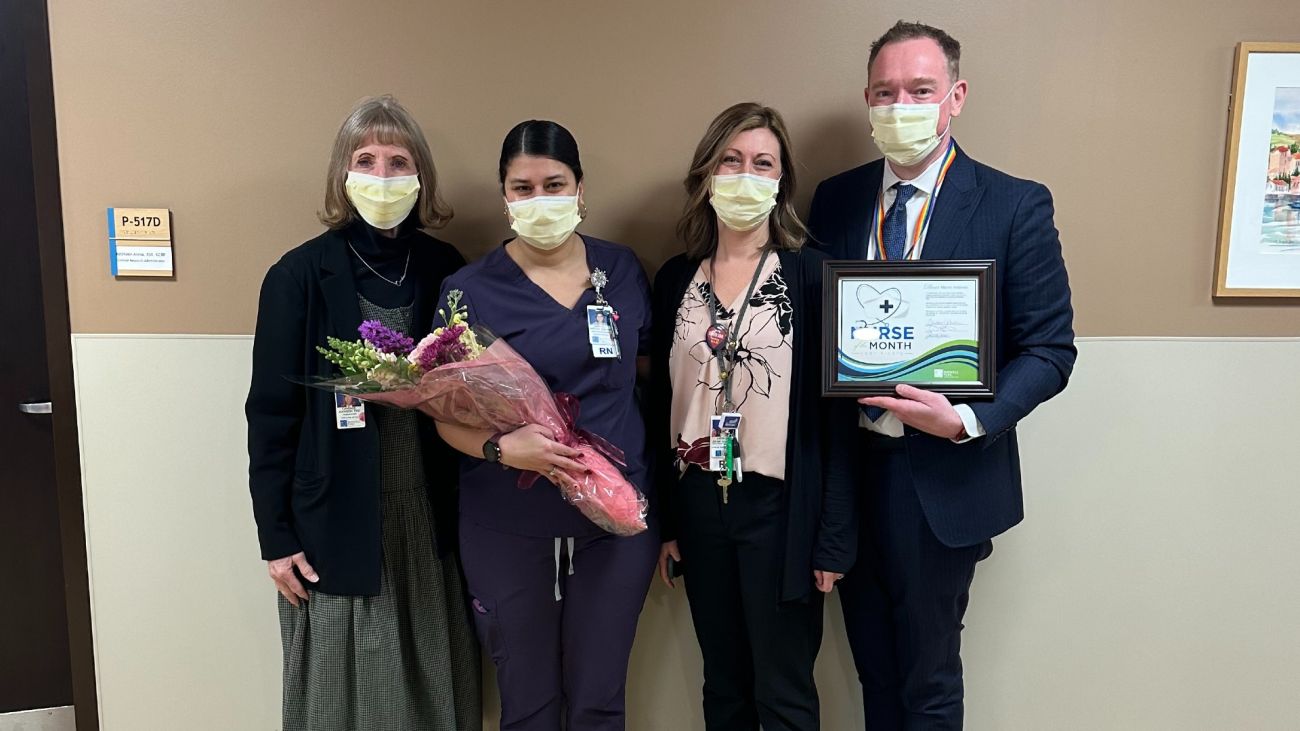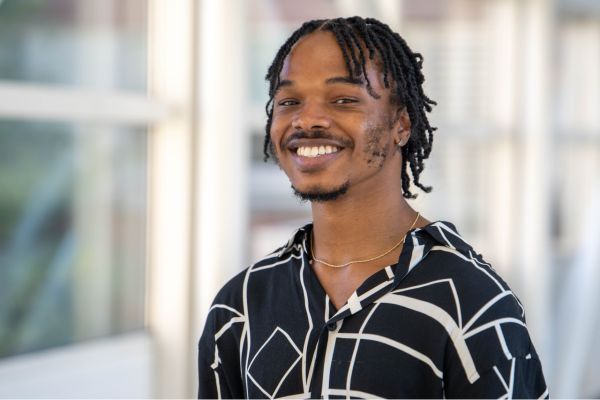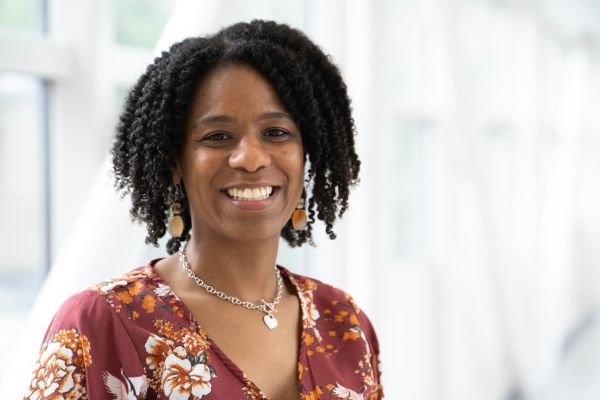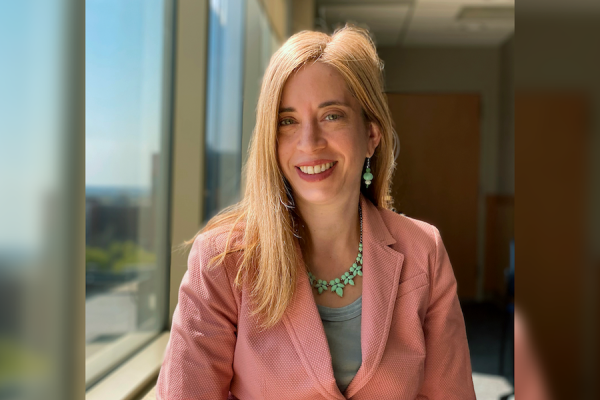As she tells it, Marioly Ambrose, RN, BSN, was just in the right place at the right time
She was participating in a 5K race at Old Fort Niagara on January 1, 2024, when the participant in front of her fell to the ground. “If I had taken one more step, he would’ve fallen on me. When I saw him fall, his legs kind of tangled. I thought he had maybe tripped and the reason he wasn’t responsive initially was because he smacked his head.”
A nurse for nearly 20 years, all of them at Roswell Park Comprehensive Cancer Center, Marioly knew exactly what to do. With the help of another woman — Eileen Gramlich, who happened to be a retired nurse — they rolled the man over and realized he wasn’t breathing. A third woman — Tina Sweeney, a physician assistant at the Niagara Falls Air Force base — called 911 for emergency medical assistance while Marioly began chest compressions, with Eileen and Tina jumping in to help take turns performing CPR.
They were just 0.13 miles from the start of the race when the man fell. Together, the three women worked on him for 10 minutes before the emergency medical technicians arrived, carrying with them an automated external defibrillator (AED), and after a short time, the man’s heart began beating again.
“It’s not like what you see on TV”
It wasn’t until Marioly returned to work a few days later and was telling her fellow clinical research nurses in the Clinical Science Center about what happened that she realized the full impact of her quick thinking. “When someone is witnessed going down out in the wild, or outside of a hospital setting, there’s only a 17% chance of survival,” she says, information passed along to her by Igor Puzanov, MD, MSCI, FACP, Senior Vice President of Clinical Investigation and Director of the Center for Early Phase Clinical Trials at Roswell Park.
Dr. Puzanov overheard Marioly recounting the harrowing event and added that even if someone is able to restart the patient’s heart outside of a medical facility, there’s less than a 4% chance of them leaving the hospital alive. “I didn’t know the odds were really, really against us. It’s not like what you see on TV,” Marioly says. “We did what needed to be done.”
Thankfully, she and her spontaneous team of nurses were able to work quickly enough to save the life of the runner, John Leszak. He’s made a full recovery: “He’s out doing Zumba, he’s walking races, it’s incredible. He’s the second-most prolific runner in Western New York – he averages a race every three days! They’re saying it’s the strength of his heart that kept him alive.”
Leszak often runs with his wife, Paula, and was doing so on January 1. When Marioly and Eileen and Tina were performing chest compressions in the hope of helping him stay alive, another woman came up and offered to administer mouth-to-mouth resuscitation on him; unbeknownst to Marioly, it was his wife Paula, who is also a nurse practitioner.
“When people talk about divine intervention, I think it goes further than that,” Marioly says.
Nursing careers at Roswell Park
Whether you are just getting started on a nursing career or are looking to your next chapter, Roswell Park can help you achieve your personal and professional goals. Find out more about becoming a nurse at Roswell Park.
Caring for patients doesn’t stop in the clinic
This also speaks to Marioly’s training and dedication to patients. She was just recertified in CPR last October, just months before the race, as is required by the Department of Nursing. She had also just talked with her team about how she’d never used CPR at work, outside of training on a dummy, before the incident. Half of the nurses on her team said the same; the other half had experience in administering CPR on patients.
For her preparedness and willingness to jump in and work to save a man’s life, Marioly is being recognized as Roswell Park’s Nurse of the Month for February.
“I love that I can rely on Marioly to provide safe patient care, adhere to clinical trial and policy requirements and be an effective team player. Managing a crisis out in the community, however, is a different ballgame when you don’t have the resources readily available as you do in a hospital setting,” says Kathleen Arena, BSN, RN, CCRP, Marioly’s manager. “While it’s not a surprise to hear how she went into action, as a medical professional, one can appreciate the magnitude of courage it took to react in this manner and save a life in the general public. I’m proud to work alongside Marioly for almost 12 years — Roswell Park and the CRS Department are fortunate to have a nurse like her!”
Marioly is a little hesitant to accept praise for doing her job. To her, it’s like celebrating someone’s misfortune on a day that could have taken a very sad turn, but eager to share the credit for saving John Leszak's life with the other two healthcare professionals who stepped up.
On the other hand, she is quick to celebrate the women she works with in clinical research — an all-female team of nurses, including some she’s recruited from her previous job on 5 West caring for leukemia patients. “We have a really great team here. They jump in, they’re helpful, when someone’s sick they stay late,” she says.
“I’ve been around as a nurse for 19 years and we have a phenomenal crew. It’s all women: we report through women, my boss is a woman, my boss’s boss, Kathryn Kartalis, Vice President of Clinical Research Services, is a woman, It’s just really great.”



